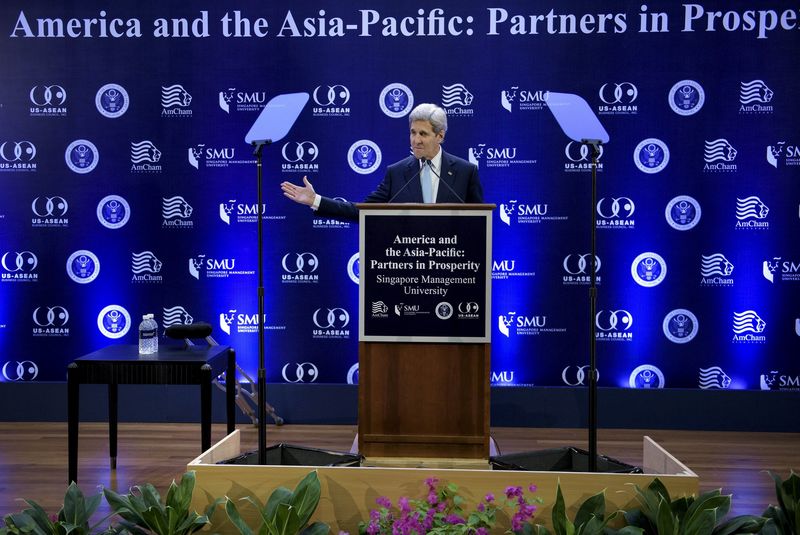TOKYO (Reuters) - Japan has expressed concern about a loss of momentum in talks on a pan-Pacific trade pact after participants failed to agree to meet again this month to try to clinch a deal that would cover 40 percent of the global economy.
Ministers from the 12 nations negotiating the Trans-Pacific Partnership (TPP), which would stretch from Japan to Chile, fell short of a deal at talks last month on the Hawaiian island of Maui, despite early optimism.
Japanese Economy Minister Akira Amari, in a blog circulated on Tuesday, also questioned why the United States appeared to have lacked its usual "stubborn persistence" at those talks, despite a willingness of some countries to stay to try to reach an agreement.
"The reason I stressed ... that we should meet again this month was because each country might lose interest and (the talks) would go adrift," Amari wrote.
"If they lose interest, it would take considerable time and effort to get motivation back to the original level, because the key to success is whether each country can maintain momentum towards an agreement."
Amari said that the United States was vague about a concrete time frame and it appeared its negotiators needed a break.
Amari reiterated that a dispute over intellectual property protection for data used to develop biologic drugs, which Washington insists should be 12 years, and gaps over access to member countries' dairy markets – a key issue for New Zealand – were major sticking points.
"What every country thought was strange was that the United States did not show its usual stubborn persistence this time but simply gave up," he wrote, adding that the U.S. negotiators seemed to have judged that agreement could not be reached in a day or two.

Failure to clinch a deal was a setback for U.S. President Barack Obama's pivot to Asia and efforts to counter China's clout. Japanese Prime Minister Shinzo Abe has also cast the deal as crucial to his efforts to reboot Japan's stale economy.